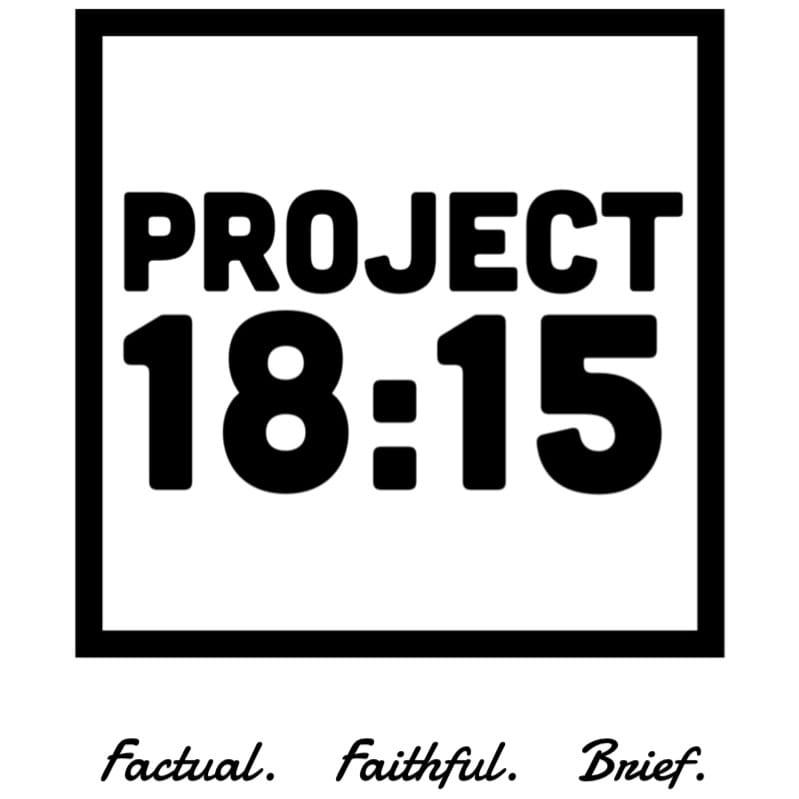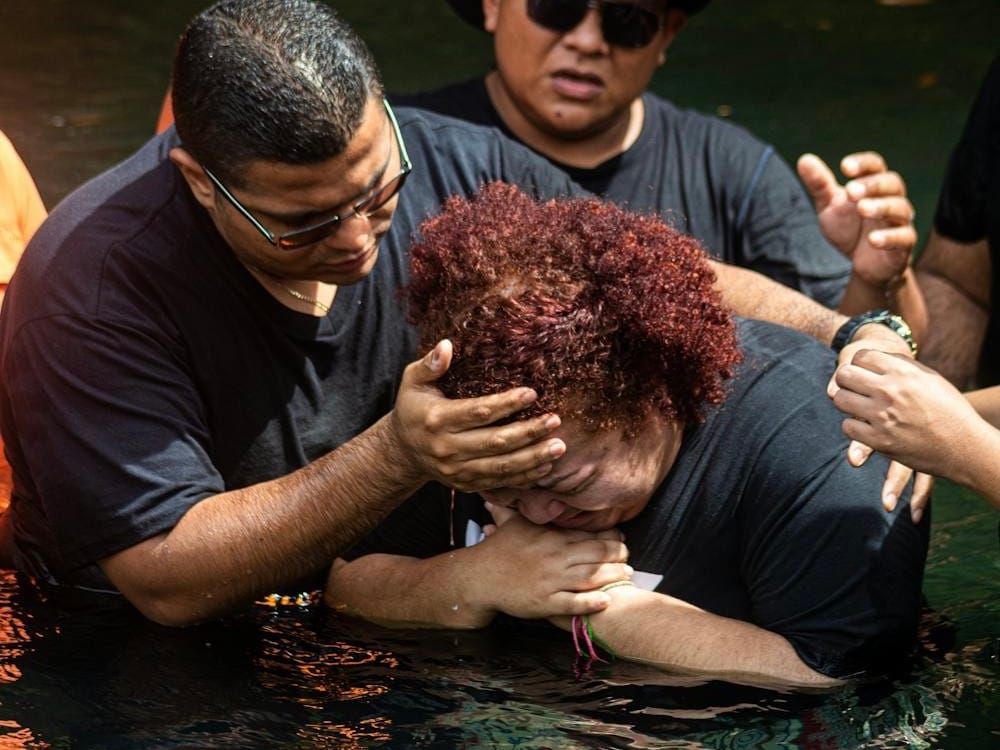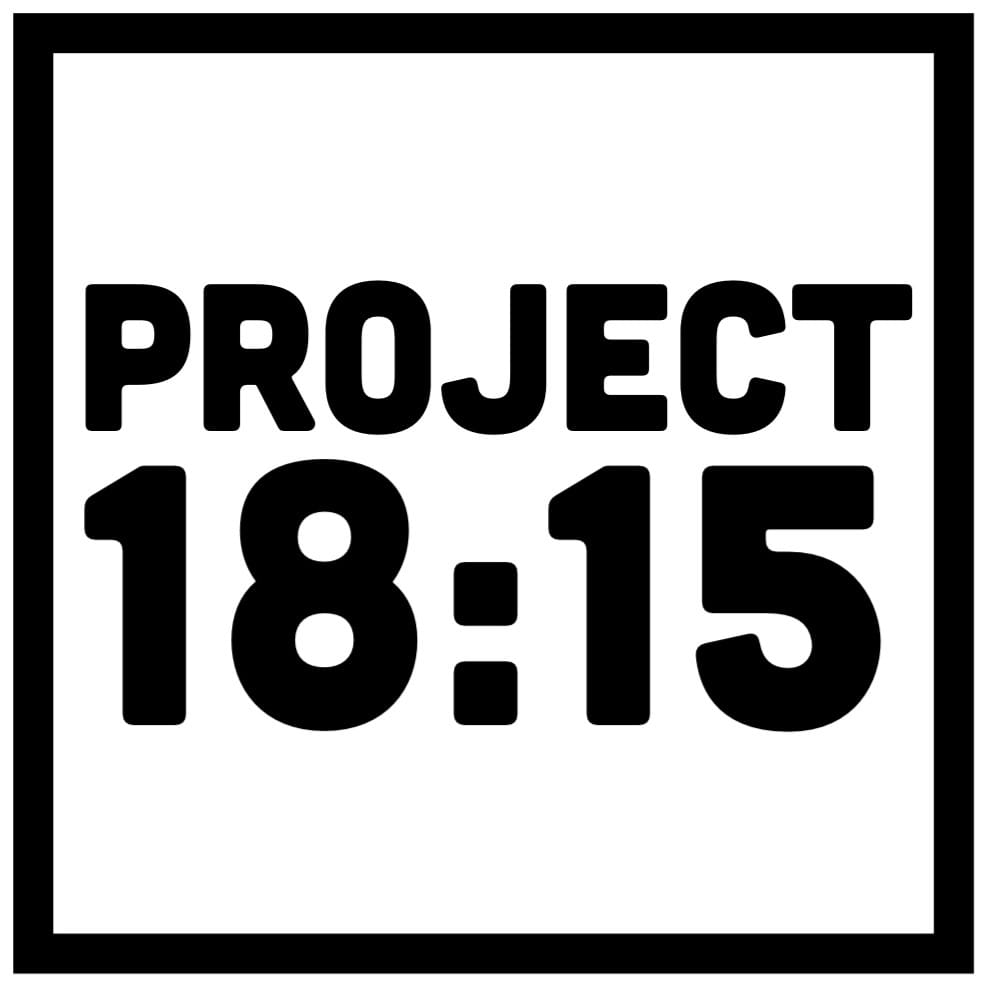
It's Saturday, March 16, 2024.
Today’s edition covers Christians online debating femininity, a missionary family trapped in Haiti’s capital, the medieval inquisition, “instruction about washings,” and much more.
Here are this week’s morsels of knowledge. Enjoy!
Of Christian Concern
CHRISTIANS ONLINE WRESTLE WITH FEMININITY

Is this femininity? (Photo: Jill Wellington)
Some recent conversations among Christians on the social media platform X have raised questions about the nature of femininity.
Effeminate Worship Music?
Pastor Armen Thomassian sparked controversy online last week when he argued that famed worship leader “Bob Kauflin leading congregational singing is all the reason needed to not attend Shepherd’s Conference,” referring to the annual pastor’s conference put on by John MacArthur’s Grace Community Church. Thomassian’s reason: the music has “a weird effeminate vibe.”
Many took issue with the comment, and even more (including popular Bible teacher Mike Winger) took issue with a follow-up post, now viewed 1.3 million times, in which Thomassian shared a video clip of the “effeminate” music at the conference.
Physical Labor and Femininity
Apparently unrelated, the next day Christian author Nancy Pearcey argued that femininity includes physical labor: “Building your own house is one of the most feminine things a woman can do.” She was responding to a post by reporter Samira Khan (not a Christian) who criticized southern-accented TikToker Hannah Barron for lacking femininity because she’s hands-on in building her own house. “Christians,” Pearcey says, “have historically stood against that denigration of physical work.”
When Pearcey defended Barron with Proverbs 14:1, “The wise woman builds her house,” some commenters argued “this verse is not about physically building a house,” but about “supporting her family in the home” or “building a hearth and home.” In reply, Pearcey observed, “The Hebrew word means physical ‘house’ and not just the more metaphorical and emotional sense of ‘home’--though of course we can include the metaphorical sense as well.”
A Timely Conflict
Perhaps it comes as no surprise, in a time when powerful segments of Western culture are challenging biblical definitions of manhood and womanhood, that Christians would also wrestle with these concepts. Winger cautions against overreaction: “In seeing the real problems of modern gender confusion (and erasure) we can react by not only grabbing firmly onto masculinity and femininity but overreact by grabbing onto anything and everything that seems connected to them.”
Also Noteworthy

Jill Dolan, now holed up in Port-au-Prince due to surrounding violence, serves children in Haiti with her family. (Facebook / Love A Neighbor)
→ Missionary Jill Dolan and four of her teenage children are stuck in Haiti’s capital since gangs took over the Port-au-Prince airport last week, her ministry reports on Facebook.
→ Ukrainian evangelical leader Pavlo Unguryan, in a plea for continued support for Ukraine, tells U.S. officials that Russia is targeting Christians. Others make similar claims.
→ “8 in 10 Americans Say Religion Is Losing Influence in Public Life,” though 57% “express a positive view of religion’s influence on American life,” according to a new Pew Research poll.
→ Tennessee megachurch First Baptist Church of Hendersonville had 93 spontaneous baptisms this past Sunday.
→ Student group Christian Union launches an eight-week evangelism campaign called “Jesus Disrupts” on nine influential university campuses across the U.S., starting tomorrow.
→ A pro-life pregnancy center network in New Jersey has petitioned the Supreme Court to stop Attorney General Matthew Platkin from subpoenaing donor info.
Content Catch-Up
Recent, notable content by Christian creators, or of Christian interest.*
→ Republicans Aren’t Ready: “I can promise you the Republican Party—well, it’s really never ready for anything thrown at it, but—in this case, it has no idea what’s coming!” Christian cultural commentator Steve Deace, in a clip from a recent episode of his YouTube show, makes a prediction about Christian political action in the near future. (Clip or full episode)
→ Abolitionists Have A Point: In a clip from yesterday’s episode of seminary president Albert Mohler’s daily podcast The Briefing, he shares his view on the pro-life vs. abortion abolitionism debate. (Clip or full episode)
*Not necessarily an endorsement
Church History Tidbit
The Medieval Inquisition

A 1580 engraving of Pope Lucius III, who initiated the first inquisition. (Public Domain)
The Inquisition, Britannica reports, was “a judicial procedure and later an institution that was established by the papacy…to combat heresy.”
It had its start in the Middle Ages, when in 1184 Pope Lucius III ordered bishops to investigate their dioceses for heresy. Regional inquisitions “proved ineffective,” however, so the “the papacy gradually assumed authority over the process.”
An inquisition usually began with a “period of grace” during which guilty individuals could confess their and others’ heresy, in return for “only light penances.” The named suspects would then be summoned to a tribunal, which was attended only by the inquisitor, the accused, a notary, and sworn witnesses. It was “often a battle of wits between the inquisitor and the accused,” and those found guilty were sentenced at a later public homily.
Penalties were most often “penitential pilgrimages, the wearing of yellow crosses on clothing (which was feared because it led to ostracism), and imprisonment.” Less common were cases of self-confessing heretics who refused to recant, who were burned at the stake. Rarely, there were “large public executions.”
The inquisition may not have been an “institution” in the Middle Ages. Nevertheless, the events during this period are apparently what “established a tradition of religious coercion in the late medieval Western church that was inherited by both Catholics and Protestants in the 16th century.”
The Bible, Briefly
Milk: Instruction About Washings

Photo: Su Casa Panamá
We’re studying “milk”—the six foundational topics of Christian doctrine (Hebrews 5:12-6:2), which the Bible presents in three pairs.
The first two items that Hebrews’s author lists (repentance from dead works and faith toward God) “are Godward and mark the initiation of the spiritual life,” commentator Warren W. Wiersbe writes. By contrast, “The next two items…have to do with a person’s relationship to the local assembly of believers”: instruction about washings and the laying on of hands (Hebrews 6:2).
What is “instruction about washings”?
This terminology may seem a little odd to many Christians, but commentators often understand “washings” to simply refer to “baptisms.” In fact, a number of English Bibles translate it that way (NET, GW, GNB, NLT, NCV, etc.).
But why is it plural?
As The Reformation Study Bible observes, “The plural is unexpected; there’s only one Christian baptism (Eph. 4:5). Yet even today when Christian baptism is discussed, other baptisms, at least John the Baptist, must be mentioned.”* Theologian Charles Caldwell Ryrie concurs, stating, “The distinction between various baptisms is a necessary part of basic Christian doctrine (e.g., baptism of Jewish proles, baptism by John the Baptist, Christian baptism).”**
So, what are those distinctions?
Pre-Christian baptism: Christian History magazine editor Steven Gertz writes, “In the book of Leviticus, God instructs Jews to cleanse themselves from ritual impurities, contracted through such acts as touching a corpse or a leper. Washing primarily fulfilled the legal requirements of ritual purity so that Jews could sacrifice at the Temple.” Eventually, Gertz explains, the practice of ritual washing took on additional significance as a symbol of cleansing for Gentiles converting to Judaism. Beyond that, the Bible reports that Pharisees had the tradition of baptizing not only people but also “cups and pots and copper vessels and dining couches,” for ritual cleansing (Mark 7:4).
John the Baptist’s baptism: John said it best himself, declaring, “I baptize you with water for repentance, but he who is coming after me is mightier than I, whose sandals I am not worthy to carry. He will baptize you with the Holy Spirit and fire” (Matthew 3:11). So, John’s baptism represented repentance from sin in preparation for the revealing of the Messiah. As the apostle Paul also said, “John baptized with the baptism of repentance, telling the people to believe in the one who was to come after him, that is, Jesus” (Acts 19:4). Those who John baptized were properly baptized again “in the name of the Lord Jesus” (Acts 19:5).
Christian baptism: Just before Jesus ascended to heaven, he commanded his disciples, “Go and make disciples of all nations, baptizing them in the name of the Father and of the Son and of the Holy Spirit” (Matthew 28:19). As Wiersbe explains, Christian baptism “is a symbol of spiritual cleansing…as well as our identification with Christ in death, burial, and resurrection...” Similarly, GotQuestions.org states, “Very simply, baptism is an outward testimony of the inward change in a believer’s life. Christian baptism is an act of obedience to the Lord after salvation; although baptism is closely associated with salvation, it is not a requirement to be saved.”
Presumably, “instruction about washings” includes questions of how, who, and when to baptize. These are debated issues, even among believers who otherwise generally agree on essential matters. There are, however, correct answers.
To be continued…
_______
*The Reformation Study Bible, ed. R.C. Sproul (Orlando: Ligonier Ministries, 2005), 1783-1784.
**Charles Caldwell Ryrie, The Ryrie Study Bible (Chicago: Moody Publishers, 2011), 1499.
What did you think of today’s briefing?


Know someone who would enjoy this?Please SHARE this newsletter




Have some feedback for me? Reply to this email with comments or suggestions. I’d love to hear from you!
Why "18:15"? The name Project 18:15 is based on Proverbs 18:15: “An intelligent heart acquires knowledge, and the ear of the wise seeks knowledge.” The aim is for this weekly email—a Christian news briefing, a Bible study, and a Church history lesson rolled into one—to be one way you keep abreast of current events and acquire knowledge you might not acquire elsewhere.
Unless otherwise indicated, all Scripture quotations are from The ESV® Bible (The Holy Bible, English Standard Version®), copyright © 2001 by Crossway, a publishing ministry of Good News Publishers. Used by permission. All rights reserved.

Copyright (C) " target="_blank">unsubscribe.
